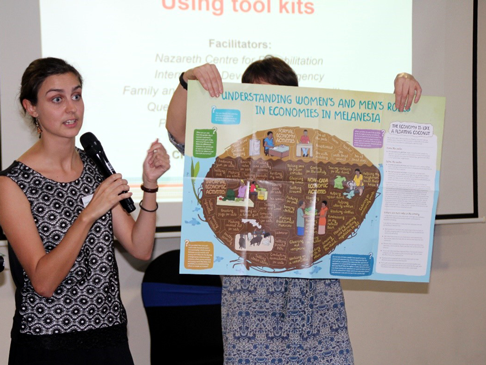International Women's Development Agency (IWDA) has produced a toolkit that enables organisations to apply learning from the Do No Harm research to their project design, implementation and monitoring. The toolkit contains resources to help women's economic empowerment projects integrate approaches to address violence against women into their activities.
The Do No Harm research funded by Pacific Women Shaping Pacific Development (Pacific Women) in Papua New Guinea and Solomon Islands explored the relationship between women's economic empowerment and domestic violence. The study was conducted by researchers from the Department of Pacific Affairs at the Australian National University.
The research highlights critical components for integrating ending violence against women approaches into women's economic empowerment programming. Recommendations include ensuring that activities to improve economic empowerment do not lead to harm to women in other aspects of their lives and the importance of working with men and boys in community-based gender projects.
IWDA has developed these research recommendations into practical tools to support organisations working at a community level on women's economic empowerment. The tools will help to integrate approaches to addressing violence into economic empowerment projects. This is an example of an initiative supported by Pacific Women contributing knowledge and resources to the wider development community.
'We know that through a lot of women's economic empowerment programs, the aim is to advance women's access to resources like income and other financial resources,' said Emily Ellis, Program Manager for IWDA in Papua New Guinea. 'But we found through the [Do No Harm] research that often it also comes alongside with [an] increased risk of violence for women and other consequences like a much heavier burden of work.'
Increasing women's economic outcomes does not necessarily lead to empowerment in other aspects of their lives; nor does it mean they have increased bargaining power within the household or agency over their own lives.
'We need to be doing work with communities – with men and women – to transform gender relations, to be working with men so that they understand and value the work of women,' said Ms Ellis. According to Ms Ellis, this work can result in more shared decision making between women and men.

